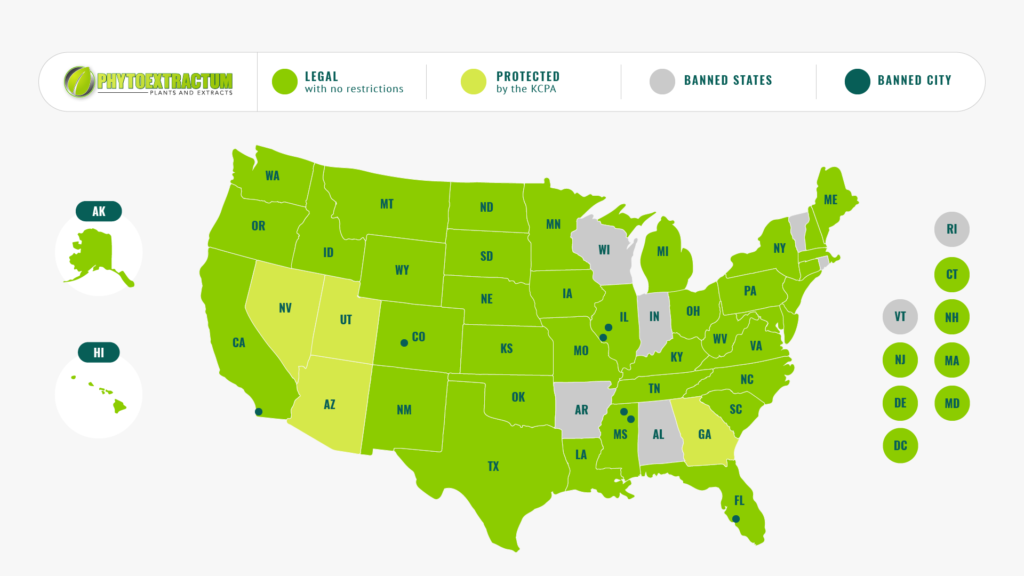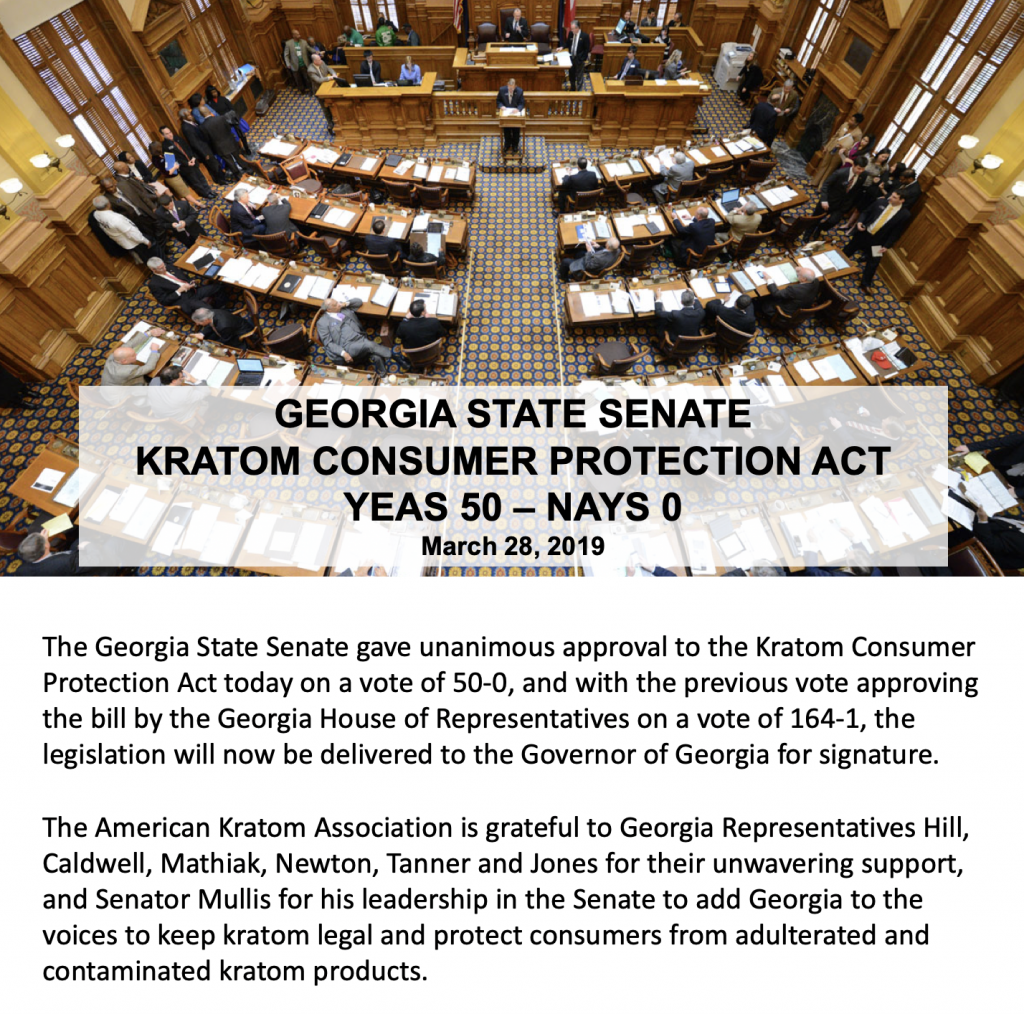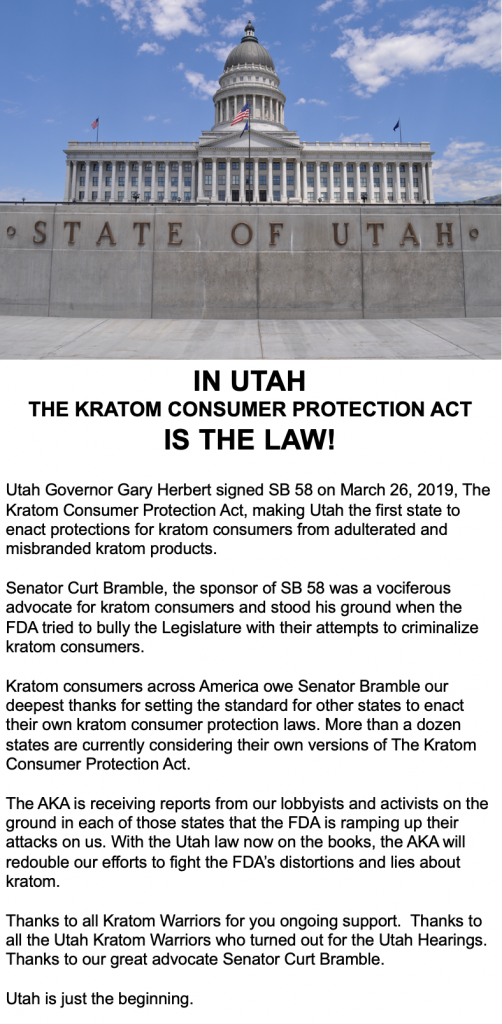Please note: The information provided in this post does not, and is not intended to, constitute legal advice; rather, all information and content referenced in this post are for general informational purposes only. This post may not contain the most up-to-date legal or other information. We encourage you to do your own thorough research to verify information and to check your local laws and regulations if you have questions about kratom’s legality in your area.
Local, federal, and international laws pertaining to kratom are constantly evolving. Here in the United States, the Food and Drug Administration (FDA) has put forth a great deal of misinformation in an effort to ban the plant, while organizations like the American Kratom Association (AKA), along with consumers, scientists, and other advocates work hard to ensure safe and legal access to this important botanical.
Laws change regularly, but we’ve gathered the most recent information about kratom’s legal status so you can educate yourself and advocate for kratom.
Is Kratom Legal Where I Live?
As of 2020, six states have banned kratom by listing it as a controlled substance. Kratom cannot be consumed, sold, or grown in these states. A few localities – cities and counties – have also made kratom illegal. Because new laws are enacted each year, it’s helpful to use the AKA’s resources to keep track of kratom’s legal status in your state.
Please refer to the below map for a quick visual guide to where Kratom is legal in the United States.

States Where Kratom Is Banned:
- Alabama
- Arkansas
- Indiana
- Rhode Island
- Vermont
- Wisconsin
Localities Where Kratom Is Banned:
Jerseyville, Illinois; San Diego, California; Sarasota County, Florida; Union County, Mississippi; Denver, Colorado (not illegal, but “not for human consumption”)
States with the Kratom Consumer Protection Act (KCPA):
Arizona, Georgia, Nevada, Utah
States with Age Restrictions:
New Hampshire: 18 and older; Tennessee: 21 and older; all states with KCPA
The American Kratom Association is currently working in over a dozen states to further enact the KCPA. This legislation would ensure both consumer safety and the legality of the kratom industry in states where it passes. Phyto wholeheartedly supports these efforts and is proud to work with the AKA to keep kratom legal.
Kratom Around the World: Is It Legal in My Country?
It is sometimes difficult to figure out kratom’s legal status in other countries because laws change on a regular basis. We try to stay current on international law, but we do not ship kratom internationally because of uncertainty around its status in some areas.
It’s always a good idea to do your own research before traveling abroad; look into local laws where you’re going, or check Reddit for answers to your international kratom questions.
Africa:
It’s not easy to find information about kratom’s legal status in Africa. We have learned that it is legal in South Africa but not widely used or even known.
Americas:
Canada’s laws are similar to Denver’s (above), where kratom is “not for human consumption.” You may find kratom described as plant matter, incense, or other vague terms. Kratom is legal in North and Central Latin America, as well as in South America. It’s not illegal in these places, but it’s also not very popular or easy to find.
Asia:
Kratom is banned in Israel, Japan, Myanmar, Malaysia, Singapore, South Korea, and Vietnam. It is legal in Hong Kong, but information kratom in China is limited.
In Thailand, kratom had been illegal since 1943, but this has recently changed. This month, the Thai government removed both kratom and cannabis from the country’s list of controlled substances, stating that these botanicals did not meet the World Health Organization’s criteria for narcotics.
Indonesia, where much of the kratom in the west is grown, is currently considering a ban on kratom exports. The American Kratom Association is working to educate the Indonesian government in an effort to impact this potential ban.
Europe:
Kratom is illegal across the board in Denmark, Finland, Latvia, Lithuania, Poland, Romania, Russia and Sweden. Due to changing laws, you should check local legislation for information about Ireland, Italy, and United Kingdom.
Oceania: Australia & New Zealand
Kratom is completely banned in Australia. It is a Schedule 1 substance in New Zealand, so it’s basically illegal. In some localities it may be prescribed by a doctor.

How You Can Help
We’ve seen some exciting developments internationally, and we are eager to continue the kratom conversation on a world-wide scale. While there is some concern that Indonesia may implement a ban on kratom exports, there’s also great news in Thailand removing kratom from its list of banned substances.
Here in the US, we should always be ready to educate and advocate for kratom, especially as legislative sessions get going in early 2020. AKA has a solid plan in place to keep kratom legal on both the state and federal levels, and we support their work as much as possible.
Visit the AKA’s website to learn more about how you can get involved with advocacy efforts for our favorite botanical!



